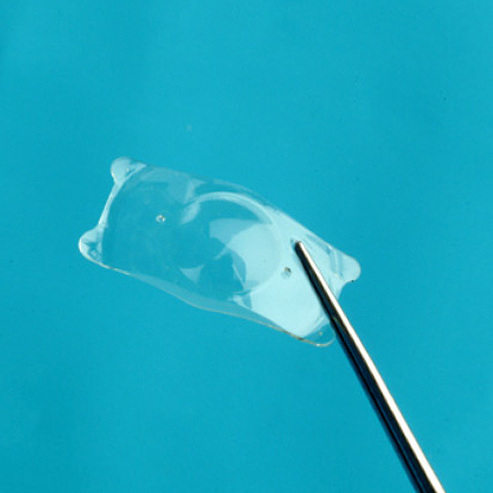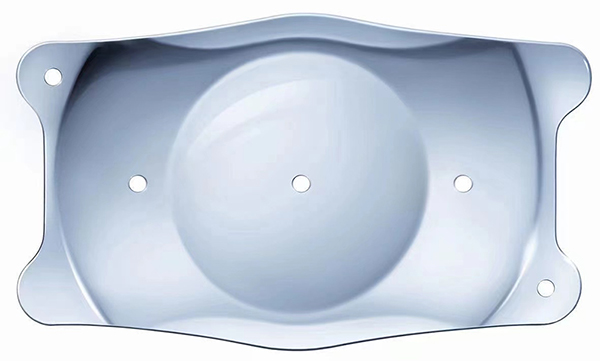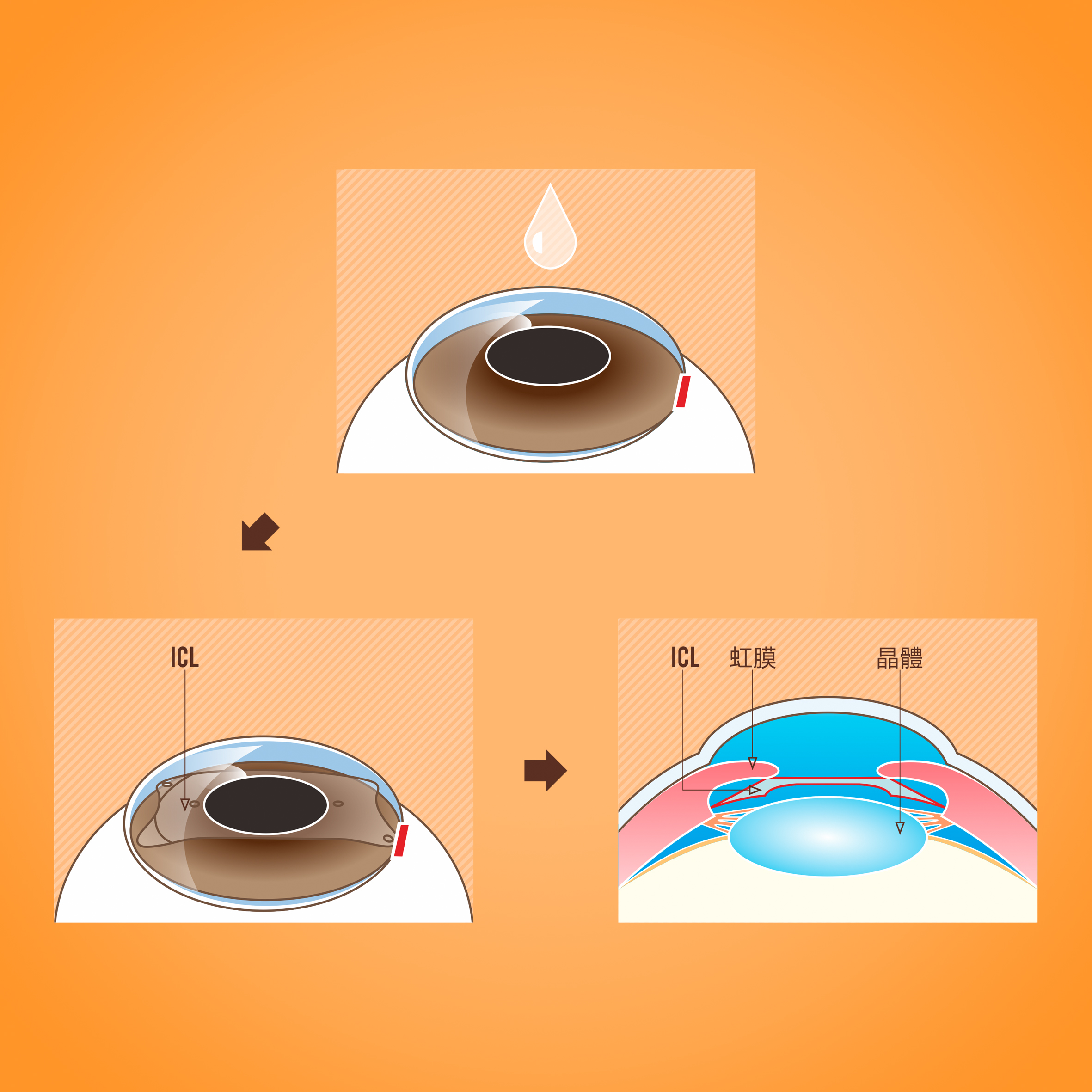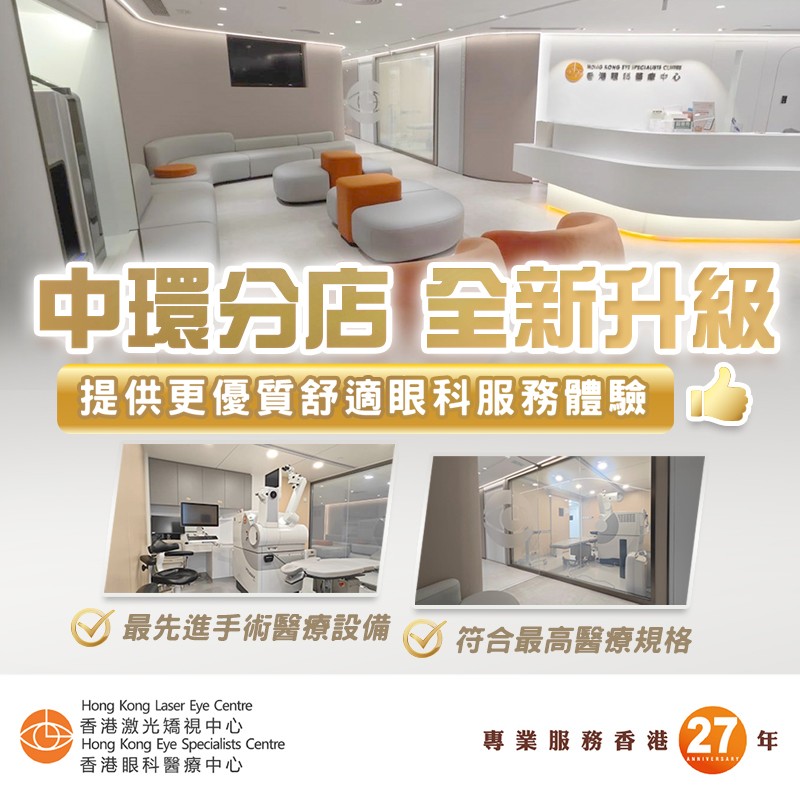1. What is ICL (Implantable Collamer Lens)
ICL (Implantable Collamer Lens) is used to correct vision for eyes with high refractive errors (myopia or hyperopia, with or without astigmatism), and especially if the cornea is unsuitable for Laser Refractive Surgery.Hong Kong Laser Eye Centre is now offering the EVO Visian ICL (Staar Surgical Company, USA) surgery to our clients. For more than 20 years, the Visian ICL series have been providing exceptional vision with more than 1,000,000 lenses implanted worldwide (data as of April 2019).
The Visian ICL is able to correct:
- Myopia up to -18.00D
- Hyperopia up to +10.00D
- With toric ICL models, astigmatism under 6.00D
ICL Viva (ICL V6) for Presbyopia Correction
- Those with myopia up to 1,800 degrees and presbyopia
2. What is the ICL made of?
The Visian ICL is made of Collamer®, a highly biocompatible advanced lens material which contains a small amount of purified collagen.
Collamer remains inert inside the eye and offers protection to the eye with the ultraviolet blocker it contains.
Collamer is a material proprietary to STAAR Surgical Company.
3. What are the advantages of ICL?
- Reversibility - the implant can be removed or replaced if needed
- Short recovery time
- Suitable for people with thin/irregular corneas or severe myopia
- The procedure does not involve the removal of corneal tissue, so unlikely to cause any changes in corneal shape
4. Am I a Suitable Candidate for ICL?
In general, if you fulfill the requirements below, you are a suitable candidate:
- Aged between 21 and 45
- Not suitable for LASIK/SMILE (Severe myopia, or thin/irregular corneas)
- Stable refraction for the past 12 months
- Has not undergone any ophthalmic surgery
- No other eye pathology (e.g. iritis, glaucoma, or diabetic retinopathy)
- Not pregnant or breastfeeding

5. How to Schedule an Appointment
To make sure if ICL is suitable for you, you should have a comprehensive eye examination at our centre first. Book the date of ICL Procedure if you pass the eye examination. Before the eye examination and procedure, you must stop wearing:
- Soft contact lens: 7 days
- Hard or gas permeable lenses: 3 weeks
- Ortho-K lens: 3 months
6. Pre-Operative Preparation
The full eye examination takes around 1.5 hours to 2 hours. The examination includes:
- Auto-refraction, trial lens to find out the accurate refraction and eyesight.
- Use computerised machine to scan and measure the corneal shape, thickness and curvature of your eyes.
- Check the back of your eye
- Dilation of pupils to check the retina
After pupil dilatation:
- Your vision will be blurry with near reading
- Light halo
- No same-day SMILE procedure
- Bring a pair of sunglasses(your eyes will be sensitive to the sun)
- Do not drive on the day of the eye examination
- The impact of pupil dilation will disappear in 4 to 6 hours
7. ICL Procedure
Your ophthalmologist will insert the ICL through a small, stitchless corneal incision to the space between the iris and your lens under topical anaesthesia. You may experience very little discomfort during the ICL implantation. The whole procedure takes around 15-25 minutes as an outpatient setting.
It is advisable that you are accompanied home by your family or friend. You need to use eyedrops or oral medications as prescribed and you will have post-operative visits on Day 1, Day 7, month 1, month 3 and month 6. The two eyes are treated on separate days, usually about 2 weeks apart.
The procedure does not involve any removal of tissue from your cornea, so it is suitable for people with high refractive errors, thin or irregular cornea, or dry eyes.

It is advisable that you are accompanied home by your family or friend. You need to use eyedrops or oral medications as prescribed and you will have post-operative visits on Day 1, Day 7, month 1, month 3 and month 6. The two eyes are treated on separate days, usually about 2 weeks apart.
The procedure does not involve any removal of tissue from your cornea, so it is suitable for people with high refractive errors, thin or irregular cornea, or dry eyes.

8. Post-Operative Care of ICL
- Wear eye shields for protection during sleep
- No rubbing of the operated eye
- Avoid soap, shampoo or tap water getting into your eyes
- Use sunglasses to prevent foreign bodies and irritation of UV light
- No swimming and eye make-up for 1 month
- Check endothelial cell count annually to make sure the cornea is healthy
- It is normal that you may experience some discomfort after the procedure. Please take the pain-killers as prescribed by your doctor.
- If the pain and discomfort is unbearable, or suffer from a vague vision in a short period of time, please consult the doctor immediately.
- Please use the eye drops (antibiotics or steroid drops) as directed by doctor.
- You must return to the clinic for post-operative check up on the first day after the procedure.
- There may be some changes on your eye sight or eye glasses prescription for 3 months after the procedure.
- Your vision will become stable until 3-6 months after the procedure.
9. Is the ICL visible to others?
No. The ICL is positioned behind the iris (the coloured part of the eye), where it is invisible to both you and observers.Your surgeon will be able to see the ICL with special equipment.
10. Can I do exercise after ICL?
Yes, but you should avoid intense sports, like basketball, diving, boxing, etc. This is not directly related to the ICL surgery but due to the high myopia.High myopia increases the risk of retinal detachment, as there is significant elongation of the eyeball, and thinning of the retina. Any shock to the eyeball may cause retinal tear and retinal detachment leading to blindness.
Therefore, high myopic patient should get a comprehensive eye check-up on a regular basis.
11. Risk of ICL
- Endothelial cell loss
- Glaucoma or cataract development
- Increase in eye pressure
- Infection or inflammation
- Glare or halo at night
- Reduced visual acuity


